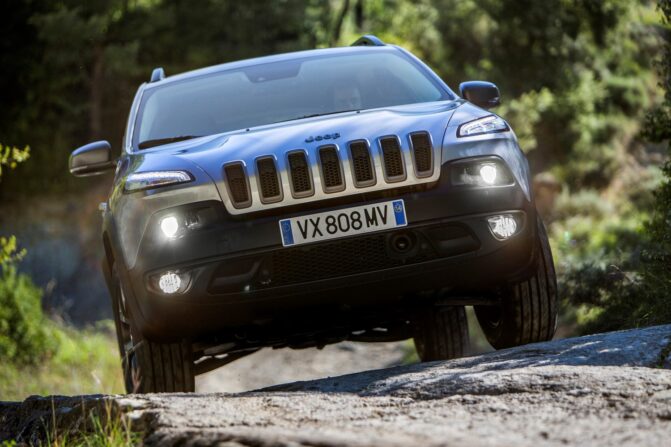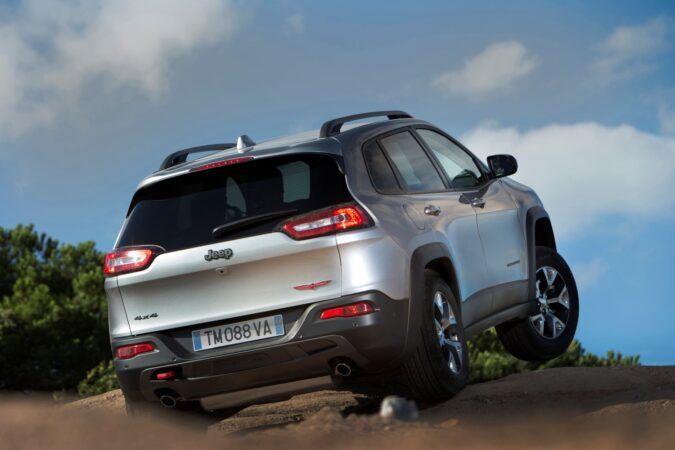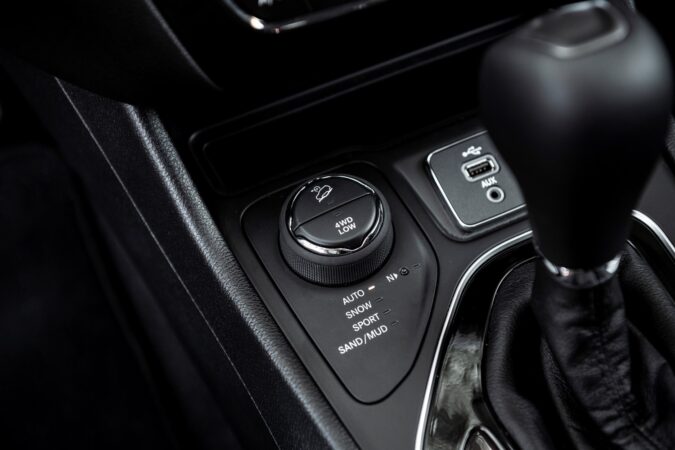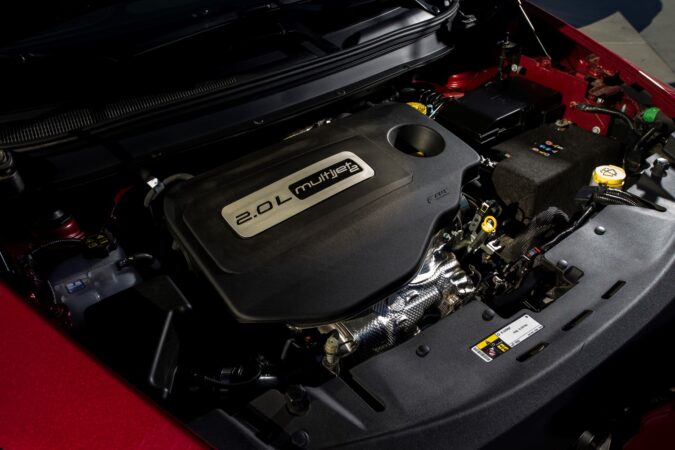If your Jeep Cherokee has power but it won’t start, some of the underlying causes could be a weak battery, a faulty starter, ignition problems, an electrical failure, bad spark plugs, or even a dead key fob battery. In short, a Jeep Cherokee that won’t start but has power is a difficult issue to diagnose and troubleshoot, including on other cars, too.
Without further ado, let’s take a closer look at what might be causing your Jeep Cherokee to not start, even if it has power. In addition, we’ll also discuss how you could fix each of these problems in detail. You can skip ahead to check out why your Jeep Cherokee isn’t starting, but first and foremost, let’s try and diagnose your Cherokee to see what might be wrong:
Jeep Cherokee Won’t Start But Has Power – Diagnosis & Troubleshooting
Now, if your Jeep Cherokee has power but it won’t start, here’s our step-by-step guide on how you could diagnose and troubleshoot your car to better pinpoint the issue:
Step 1: Check Your Battery’s Condition
If you notice dim lights, clicking noises when turning the key, and sluggish cranking, these are early symptoms of battery issues with your Jeep Cherokee.
Thankfully, a weak or bad battery is relatively easy to diagnose, so here’s what you can do:
- First up, turn on your headlights. If they appear to be dim or flicker on and off, the battery may be weak.
- For a more specific reading, you could use a multimeter to check the battery’s voltage. It should read 12.6V+ when fully charged.
- You could also try jump-starting your car. If it starts, then your battery or alternator may be at fault.
Some possible fixes for a bad or weak battery include:
- You could try cleaning corroded battery terminals.
- Alternatively, you should replace the battery if it’s old or if it’s not holding a charge.
- If jump-starting works but the battery drains quickly, you could test the alternator (more in Step 4).
Step 2: Inspect the Key Fob
Symptoms of a problematic key fob include seeing a “Key Not Detected” warning light on your dashboard, as well as your car not responding to button presses.
On the bright side, diagnosing your car’s key fob is pretty simple, starting with:
- First up, you should try unlocking your car manually using the key blade.
- If that doesn’t work, try holding the key fob close to the push-start button and then attempting to start.
- Otherwise, you should ideally replace your key fob battery and try again.
To get around a key fob that isn’t working right, you could use a backup key fob, if available. Or, if replacing the key fob’s battery doesn’t work, you may need to reprogram your key fob or replace it.
Step 3: Test the Starter Motor
Some early warning signs that your car’s starter motor is on its way out include hearing a loud clicking noise when turning the key, but the engine doesn’t crank.
Here’s how you could easily diagnose the starter motor in your car:
- To begin, you’ll have to turn the key to “Start” and listen for a single click or repeated clicking sounds.
- Then, try tapping your starter motor lightly with a wrench, and then attempt to start your car again.
- You could also use a voltmeter to check for voltage at the starter solenoid while turning the key.
If your car does have a bad starter motor, here’s what you can do to try and get it working again:
- If tapping your car’s starter works, then it may need a replacement soon.
- Alternatively, you could also try replacing the starter relay if faulty.
- If no voltage reaches your car’s starter, then check the ignition switch or wiring.
Step 4: Verify the Alternator Function
Next up, we can check your alternator, where symptoms of failure include your battery draining quickly, seeing warning lights on your dashboard, and the engine dying while driving.
With that said, here’s how you could diagnose your car’s alternator to see if it’s working right:
- First and foremost, start your vehicle with a jump-start and remove the jumper cables. If it stalls, then your alternator may be dead.
- You could also use a multimeter to check the alternator. With the engine off, the voltage should be 12.6V+. Meanwhile, with the engine running, the voltage should be between 13.5V – 14.5V.
- For further confirmation, you could also look for burning smells or whining noises from the alternator.
If you’re looking to fix your alternator, it’s worth just replacing it outright if it’s not charging the battery properly. On the other hand, you could check your car’s serpentine belt for wear, as a loose belt could affect charging.
Step 5: Inspect the Ignition System & Spark Plugs
Signs of a faulty ignition system encompass issues like noticing that your engine is cranking but it’s not starting, rough idling, and a loss of power.
Diagnosing your ignition system is a bit tougher and requires some hands-on time with your car, but it’s doable at home:
- First up, try starting your car in Neutral instead of Park. Doing this can bypass a faulty neutral safety switch.
- If that doesn’t work, try removing a spark plug and inspect for carbon buildup, wear, or other damage.
- Check for fuel smell, too! If your engine is getting fuel but it won’t ignite, the spark plugs may be at fault.
To fix a Jeep Cherokee that won’t start but has power due to ignition issues, here’s what you could do:
- The most robust fix would be to simply replace worn or fouled spark plugs.
- You could also inspect and replace ignition coils if they’re weak or faulty.
- If your car stalls after starting, then check for a faulty fuel pump relay or TIPM issues (more in Step 6).
Step 6: Investigate Jeep-Specific TIPM & Fuel System Issues
Specific to Jeep models such as the Cherokee, you should also keep an eye out for problems like your engine cranking but it won’t start, the fuel pump not engaging, or electrical malfunctions.
These are signs of failure with Jeep’s troublesome TIPM system, so here’s how you could diagnose it further:
- See if you could listen out for fuel pump noise when turning your key to the “On” position (it should hum for a few seconds).
- Then, try cycling your key On and Off a few times before attempting to start your car.
- If your particular Jeep is affected by TIPM issues, then a fuel pump relay bypass may be necessary.
There’s not much that you could do to DIY a fix for this, but a good place to start would be replacing the fuel pump relay or fuel pump if you can’t hear any fuel pump noise. Alternatively, if you’re dealing with TIPM issues, then a software update or bypass kit may be needed.
All in all, if none of these diagnostics and troubleshooting steps worked, then it might be a good idea for you to visit a mechanic or a dealership. With that out of the way, and to provide a bit more context as to why these issues occur, here’s a quick look at some of the many problems that might be causing your Jeep Cherokee to not start, even if it has power:
Jeep Cherokee Won’t Start But Has Power #1 – Dead Or Depleted Battery
If you try to start your Jeep Cherokee, but it won’t go, you need to check the battery. This is most often the most common cause of a car not starting. You’ll need a voltmeter to evaluate the battery’s voltage readings and determine whether a faulty battery is the cause of the problem. In addition, you’ll also need a battery from a running Jeep and jumping wires.
Using these, you can connect your battery to an external power source to help jump-start it. To diagnose this, insert the key into the starter to start your Jeep Cherokee. Now, turn on the headlamps if you notice that the light produced is low, or dim, or, alternatively, if the headlamps don’t turn on, you may have a failing battery on your hands.
So, how can you ensure your Cherokee starts even with a low battery, then? Well, trying to jump-start it and draw power from another vehicle, you can try to restart a weaker or drained battery. Additionally, another probable cause for your Jeep Cherokee not starting is corroded electrical connections. Or, if you have chewed-up wires and electrics, instead.
Even if it doesn’t happen often, you can inspect your battery wiring for rust or damage by removing the battery from the car. The first step in resolving this issue is to clean and reconnect the battery connectors. There are plenty of DIY techniques for cleaning corroded battery terminals. Finally, try restarting your car to see if it fixes the issue.
Jeep Cherokee Won’t Start But Has Power #2 – Insufficient Key Fob Battery
It’s possible that a weak key fob battery is to blame if your Jeep Cherokee isn’t starting. You can still start your car without a problem because the battery just serves to transmit the signal for locking and unlocking. But, when the key fob battery runs out, the door no longer locks or unlocks with a button press. The doors then need to be physically opened.
A passive transponder manages the immobilizer. The transponder inside the key is passive, so it doesn’t require a separate power source. If your car is one of the models that only has a key fob with a start/stop button and no location to enter a key, try positioning your key fob as closely as you can to the start/stop button before starting the car.
Jeep Cherokee Won’t Start But Has Power #3 – Starter And Alternator Problems
Usually, the starter is the first thing to be ruled out as the reason your car won’t start. Your engine cannot ignite and start unless the starter turns it over. In essence, if it isn’t working, that could be the cause of your Jeep not starting. So, it’d be a good idea to check and troubleshoot the starter. Unless, it could also be the starter solenoid or relay.
The starter solenoid and starter relay are separate, despite their connection. The starter solenoid is turned on by a current that is activated by the starter relay. If it doesn’t work properly, there won’t be enough power to start your car. If it doesn’t, the battery’s electrical charge will become hindered. Thus, it’ll cause your car to not start.
Meanwhile, the alternator’s job is to recharge the battery while the car is running and moving. If the alternator isn’t working, you won’t have enough electricity to run your car. Like a faulty or dead 12V car battery, the alternator can be checked by having your electrical equipment tested or determining its workload. This is another thing to diagnose.
Jeep Cherokee Won’t Start But Has Power #4 – Faulty Starter Solenoid
It’s also worth mentioning that in specific model years of the Jeep Cherokee, alternative failure is pretty common. In some cases, this faulty alternator could even catch on fire. Otherwise, you may notice whining noises, smoke, and burnt-odor smells. A faulty alternator will not charge the battery, so your Jeep Cherokee won’t start, but it has power.
A starter solenoid is one of the most important components required to start your car. In other words, it helps to ignite the combustion chamber by using electrical charges from your car battery and ignition system. Sparking is used to ignite the engine in your car. It is advised to check the fuses and replace any that need to be changed if it is not working.
Speaking of the ignition system, another common problem with the Cherokee is defective ignition switches in some model years. Funnily enough, with this issue, if your knee made even the tiniest touch with the steering column area, the ignition key would flip to the “off” or “accessory” position. The only solution for this is to replace the ignition switch.
Jeep Cherokee Won’t Start But Has Power #5 – Defective Spark Plugs
Let’s say your Jeep Cherokee won’t start if the battery or starter isn’t the fault; another common cause of your car not starting could be the spark plugs. So, we’ll need to check them. You may locate the spark plug wires by opening your hood. The first spark plug wire should be removed, and a spark plug wrench should be used to detach the second wire.
Examine it thoroughly to check for any issues that could become serious, no matter how small. This could include fouling or the presence of carbon deposits. Or, if you notice that the arc is wider than it should be, spark plugs need to be changed. If you believe your spark plugs are damaged, replace them with new ones and perform another inspection.
Though, if it’s not a mechanical or electrical fault, it might be an electronic one, instead. Some Jeep Cherokee model years were plagued with issues related to the fully integrated power module (TIPM). In particular, it was a faulty fuel pump relay in the system that could cause certain cars to not start. Or, it might stall altogether while you’re driving.




